‘Shonks’: Shorten’s fiery NDIS row
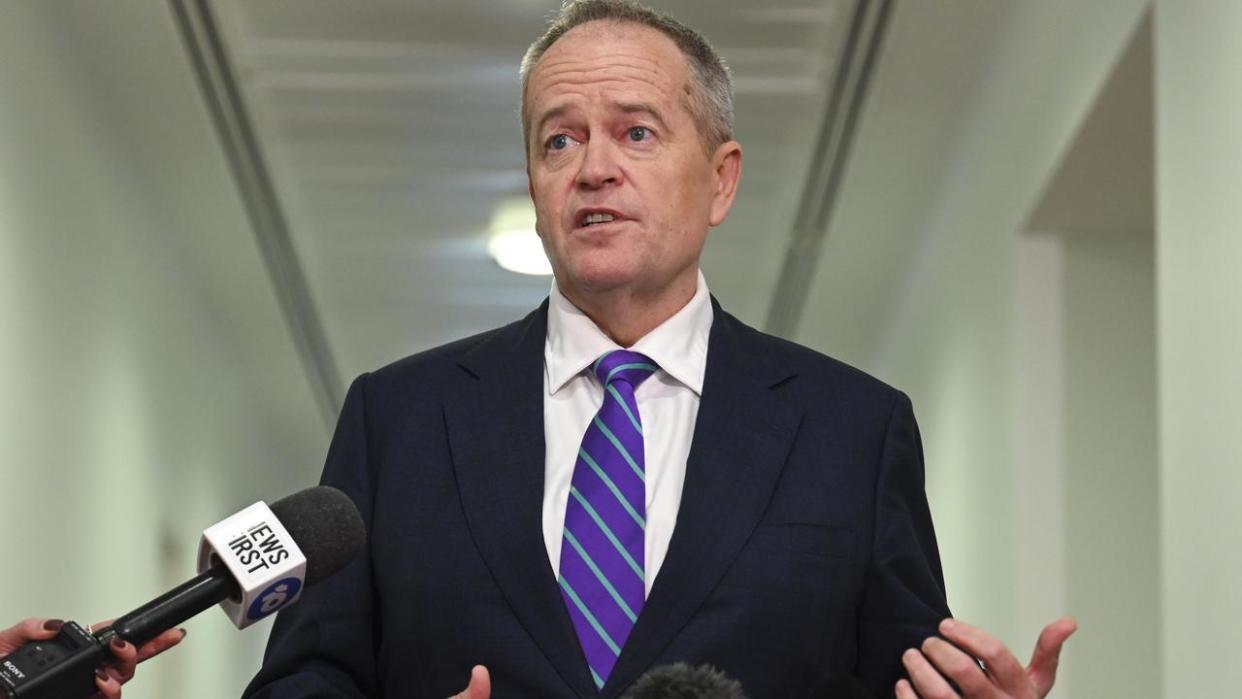
Bill Shorten has fired back at anger over revelations that billions of dollars of NDIS funds were being spent in error, including on illegal drugs and expensive holidays.
A Senate committee heard yesterday a significant proportion of disability plan managers had committed fraud under the $44bn scheme, including one case where a manager met an NDIS participant at an ATM to withdraw funds to source “illicit substances.”
Appearing on Sky News on Wednesday, Mr Shorten fiercely defended his overhaul of the disability payment system, which he said had been “chronically underfunded” by his predecessors.
“I get up every day and work on this scheme, we’ve now doubled the number of investigators in the commission,” he said.
“I wish that perhaps for the last 10 years, there hadn’t been naivety about how this scheme attracts spivs and shonks wherever there is government money, but I wouldn’t scrap this scheme.”
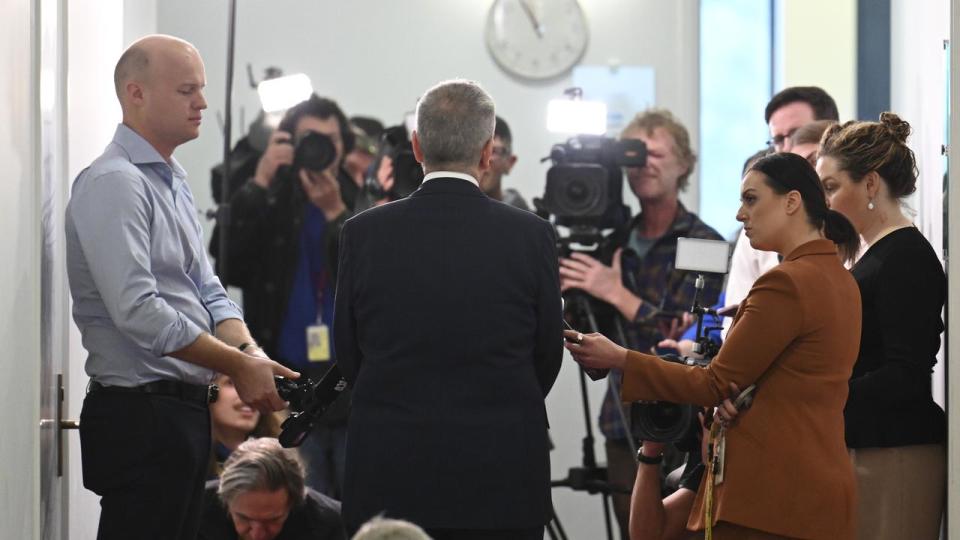
Mr Shorten added there was an “unacceptable” proportion of fraud occurring within the NDIS and said there were 220 investigations underway into dodgy providers.
“I love the scheme and I’ll make sure that anybody who wants to hurt the scheme is not let in,” he said.
New Afterpay laws introduced
Buy-now, pay-later services such Afterpay and Zip will be required to perform tighter credit checks on new customers and impose credit limits on certain users, under new consumer protection laws.
Financial Services Minister Stephen Jones on Wednesday introduced legislation into parliament to classify buy now, pay later products (BNPL) as credit products.
He told parliament that BNPL provided Australians access to cheaper credit; however, he said it could cause financial harm, citing a study that found 73 per cent of financial counsellors said users had cut back on buying essentials to pay off their BNPL debt.
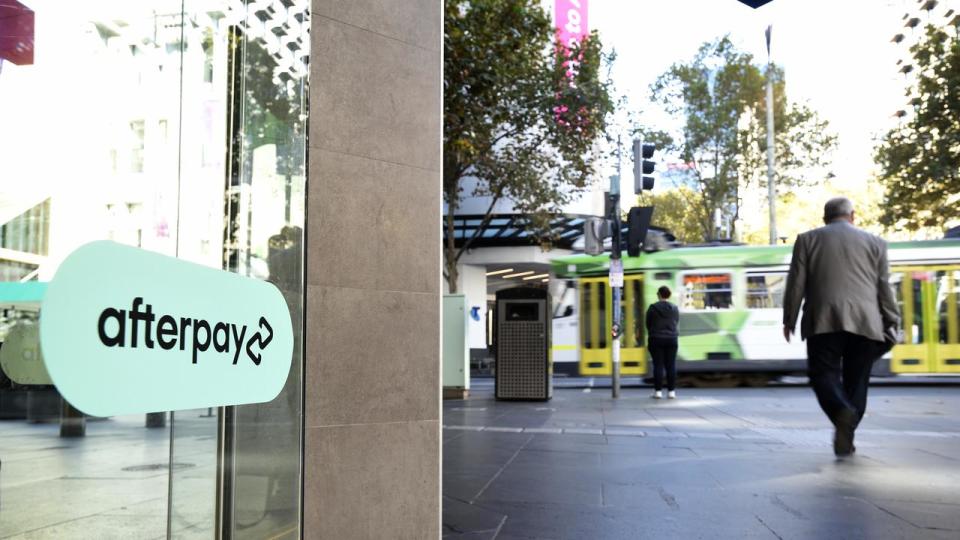
About 40 per cent of Australians have used a BNPL service in the previous six months, according to a Finder survey in March.
Under the current rules, people aren’t required to prove their income to use the service, and that would change under tougher regulations.
“We want to ensure that those consumer protections that we think are necessary for credit products apply to the buy-now-pay-later sector and when we put in place those new laws, that’s exactly what will happen,” Mr Jones told ABC earlier.
“It will ensure that we maintain the great innovation and competition that the buy-now-pay-later sector has introduced into credit markets but the same consumer protections will be in place as well.”
Trade permits to Israel revealed
Australia has approved six defence export permits to Israel since it declared war on Hamas on October 7, Senate estimates has been told.
Defence department officials have revealed the department approved the trade permits relating to defence capabilities after Israel declared war on Hamas after militants killed around 1200 people and took 250 hostages.
While refusing to detail the exact items that included ad been approved for export, officials said they were being used by police and military personnel.
“The government continues to calibrate (its) approach and the permits that have been issued are used by Australian defence and law enforcement,” Labor senator Jenny McAllister said.
The federal government has firmly denied any military exports to Israel.
Next step for deepfake laws
Australians could face up to six years in jail for sharing AI-generated sexually explicit images as part of efforts to curb a spike in high rates of violence against women.
Attorney-General Mark Dreyfus introduced new legislation to criminalise the creation and sharing of deepfakes earlier on Wednesday.
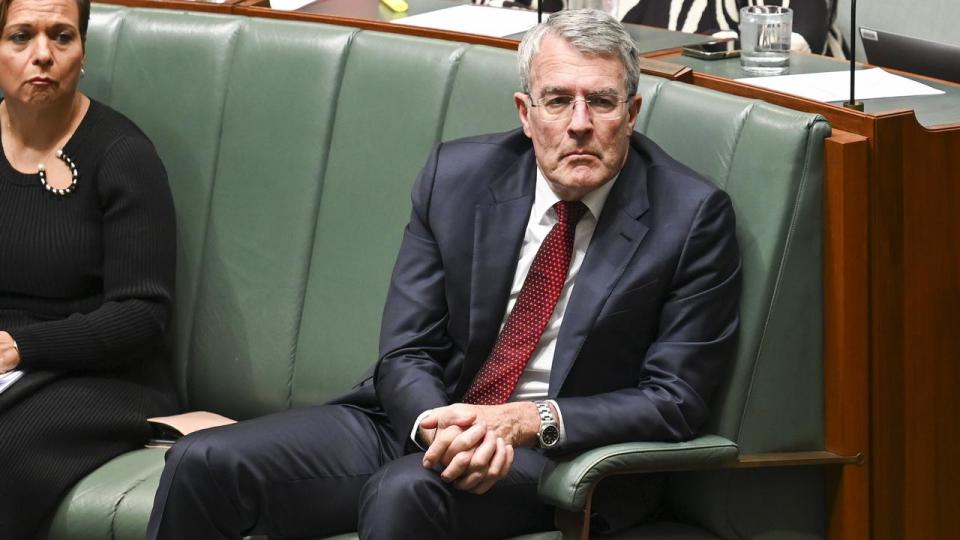
Offenders could face up to six years under the tough new laws, which were specifically designed to protect people over the age of 18.
According to an RMIT survey run last year, Australia has far higher victimisation rates of non-consensual sharing of deepfake pornography (3.7 per cent) compared with the global average of (2.2 per cent)
Mr Dreyfus told ABC earlier that the criminal code already had provisions that cover the spread of child abuse material.
“These are very serious penalties that we are going to provide. It’s a maximum of six years for sharing and for the aggravated offence it will be seven years. That’s if you have both created the material and shared it,” he said.
“But because the Commonwealth’s jurisdiction is limited to the activity of sharing, we’ll have to wait perhaps for states to catch up and criminalise the creation activity.”
Medibank sued, faces trillion-dollar fine
Medibank has been sued by Australia’s privacy watchdog over a major data breach that leaked the personal details of 9.7 million people.
The Australian Information Commissioner has accused the country’s largest health insurer of failing to protect its customers, after hackers broke into its systems and stole data including people’s names, dates of birth, and Medicare numbers in 2022.
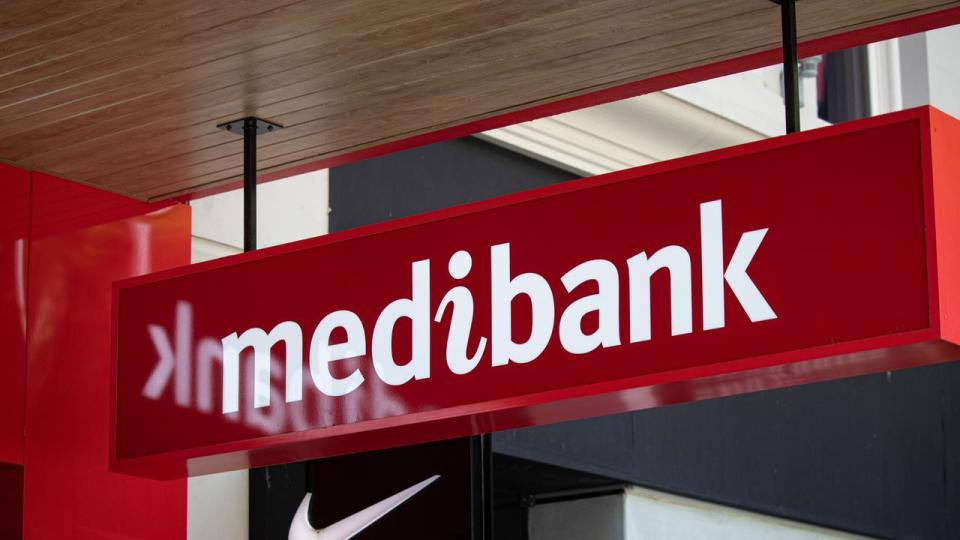
Much of the stolen data was published on the dark web.
Earlier this year, Australia imposed a cyber sanction on Russian national Aleksandr Ermakov for his role in the hack.
Acting Australian information commissioner Elizabeth Tydd said that the leak “exposed a large number of Australians to the likelihood of serious harm, including potential emotional distress and the material risk of identity theft, extortion and financial crime.”
Medibank faces penalties of up to $2.22m for each contravention.


